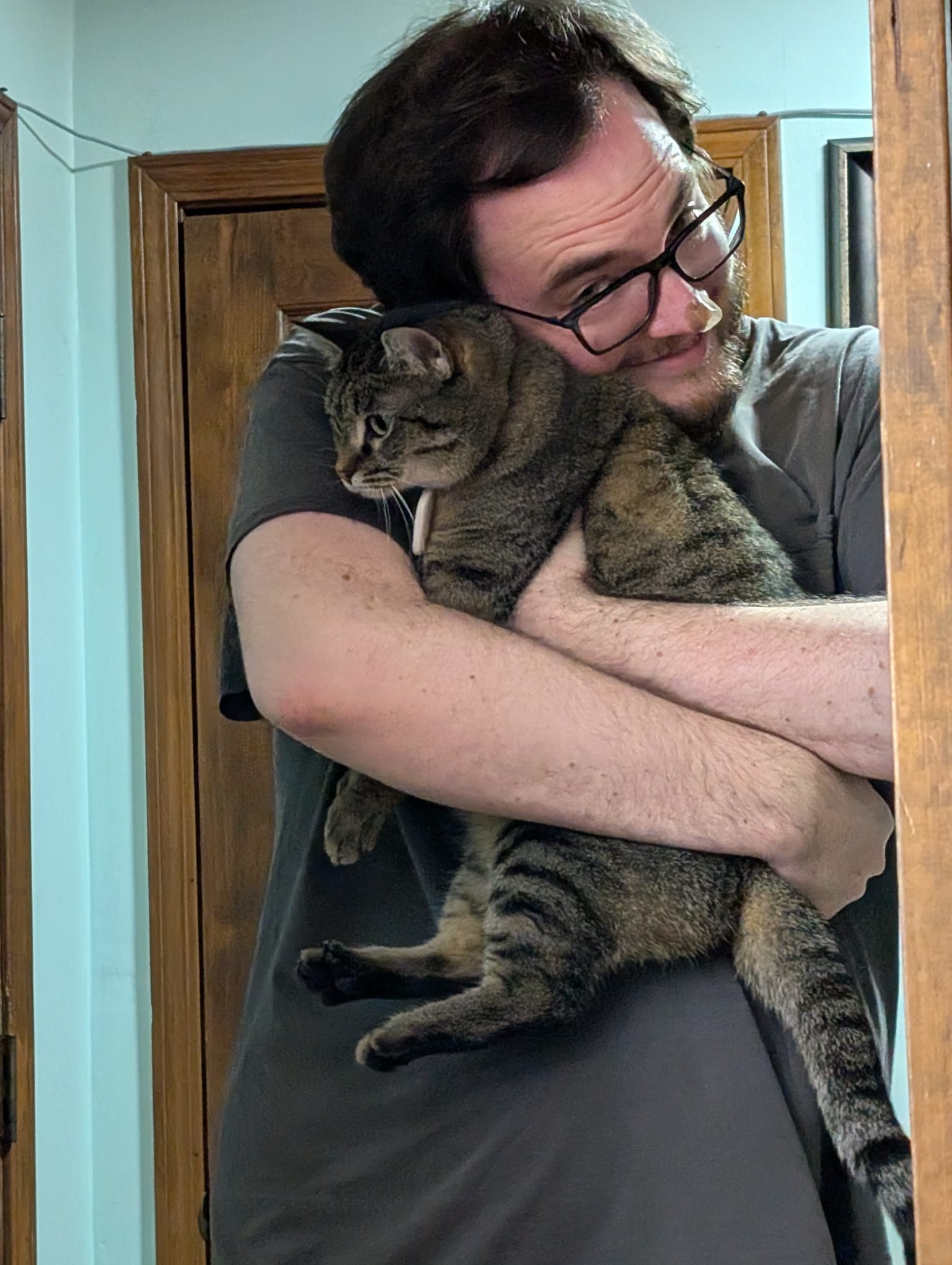A Community That Prays

“A Community That Prays” – October 26th, 2025
As we saw last Sunday, Luke is very intentional in his gospel to call forth and to nurture the church as a community of restoration (R) and liberation (L). As we draw our series on the Gospel of Luke to a close, we will see today that Luke is also very intentional in his gospel to call forth and to nurture the church as a community that prays (P).
What is prayer?
That sounds simple enough. But what is prayer? Twenty-three years ago, when I was invited to join the pastoral staff at our large Vineyard church in order to develop prayer ministry, one of the first things I discovered was that people held a wide range of opinions about prayer. Is prayer talking to God? listening to God? voicing needs? expressing gratitude? seeking guidance? Is prayer silent? one-at-a-time? a cacophony of loudness? meditative? Does prayer involve singing? kneeling? closing eyes? lifting eyes high? being alone in a closet? joining together? The diversity of ideas was quite encouraging to me, but it quickly became apparent that many people often disqualified themselves in some way. Perhaps they thought that their particular style or habit would not be acceptable to others. After all, the Vineyard is a middle-of-the-road kind of denomination and draws people from all kinds of churched or unchurched backgrounds because everyone is welcome! In order to remind everyone that everybody gets to play, I decided an invitational phrase might help, which I expressed as “many ways to pray.” Jesus modeled this in his own life of prayer. And the early church modeled this in the many expressions of prayer that have been passed to us through Scriptures and saints.
Prayer is not …
To further explore what prayer is, let’s first consider what it is not. Prayer is not a laundry list. Prayer is not a one-way conversation. Prayer is not a detached duty. Prayer is not something to check off our daily list. Prayer is not breaking down God’s reluctances. Prayer is not ordering God about. Prayer is not trying to pressure God into answering. Prayer is not pushing a particular agenda. Prayer is not asking God to be on our side. Prayer is not a magic formula to unlock heavenly power. Prayer is not a competitive sport. Prayer is not a token in a game of chance. Prayer is not a stack of coins in a vending machine. Prayer is not a stronger wifi signal so that God can hear us better. Prayer is not a method to get desired results. Prayer is not making lots of noise to attract God’s attention. Prayer is not a sports chant centered on a mascot. Prayer is not banging on a door to influence God to change his mind. Prayer is not saying more eloquent words to convince God we have a good case. Prayer is not a drive-through order window. Prayer is not a weapon to wield against someone from the other side. Prayer is not a relief valve to get things off our chest and ease our conscience. Prayer is not a medication to make us feel better. Prayer is not an optional side dish. Prayer is not a rehearsal of what’s going wrong with a person, a community, or the world. Prayer is not demanding our rights. Prayer is not buying a lottery ticket. Prayer is not whipping up emotions. Prayer is not sending a wish list to Santa.
Prayer is a gift from God received with humility
Prayer is first and foremost a gift from God, and, even though it has already been given, the gift of prayer still has to be received. Romans 8:26 tells us that “the Spirit helps us in our weakness; for we do not know how to pray as we ought, but that very Spirit intercedes with sighs too deep for words.” The first step in receiving God’s gift of prayer is to humbly acknowledge that we do not know how to pray!
Jesus actually speaks of humility as the foundation of prayer, in the parable he told in Luke 18:10-14 – “Two men went up to the temple to pray, one a Pharisee and the other a tax collector. The Pharisee, standing by himself, was praying thus, ‘God, I thank you that I am not like other people: thieves, rogues, adulterers, or even like this tax collector. I fast twice a week; I give a tenth of all my income.’ But the tax collector, standing far off, would not even look up to heaven, but was beating his breast and saying, ‘God, be merciful to me, a sinner!’ I tell you, this man went down to his home justified rather than the other; for all who exalt themselves will be humbled, but all who humble themselves will be exalted.”
Prayer is responding to God’s initiative
In addition to humbling ourselves before God, we also need to remember that prayer is about responding to God’s initiative. Remember when the woman at the well encountered Jesus in John 4? She came seeking water. Jesus met her there and was the first to speak – he asked her for a drink. This is a beautiful picture of prayer. Jesus Christ comes to meet each one of us, each person, right where we are.
Psalm 139:7-12 speaks of the everywhere-ness of God’s presence – “Where can I go from your spirit? Or where can I flee from your presence? If I ascend to heaven, you are there; if I make my bed in Sheol, you are there. If I take the wings of the morning and settle at the farthest limits of the sea, even there your hand shall lead me, and your right hand shall hold me fast. If I say, ‘Surely the darkness shall cover me, and the light around me become night,’ even the darkness is not dark to you; the night is as bright as the day, for darkness is as light to you.”
Jesus showed and taught us to pray
Throughout his gospel, Luke points us to the life of Jesus as he emphasizes that prayer is important, waiting on God is essential, and that the more significant the situation, the more important it is to set aside time to pray. Jesus models praying for guidance, staying close to God’s heart, being refreshed by God’s presence, and receiving empowerment from God to show and tell the good news of the kingdom. Jesus told stories, like the parable of the persistent widow in Luke 18, designed to encourage us to pray always, to not lose heart, and to cry out for justice (which God promises to grant). In Luke 21 and 22, Jesus urges us to be alert at all times and to remember in prayer we strength to overcome trial and weakness. Luke emphasizes the importance of faithfulness in submitting to Jesus’ Lordship and in continuing his kingdom ministry, as we proclaim repentance and forgiveness of sins in Jesus’ name to all nations.
Luke includes a key passage on prayer, Jesus’ response to a request, “Lord, teach us to pray.” Luke 11:2-4,9-10 – “When you pray, say: Father, hallowed be your name. Your kingdom come. Give us each day our daily bread. And forgive us our sins, for we ourselves forgive everyone indebted to us. And do not bring us to the time of trial … Ask, and it will be given you; search, and you will find; knock, and the door will be opened for you. For everyone who asks receives, and everyone who searches finds, and for everyone who knocks, the door will be opened.”
Jesus both tells and shows us that God gives good gifts generously, especially the Holy Spirit! In other words, God gives us Godself!
Many saints have shown and taught us to pray
Throughout church history, many saints have shown and taught us to pray. Here are four short examples:
- Fourth century church father Augustine of Hippo said, “Whether we realize it or not, prayer is the encounter of God’s thirst with ours. God thirsts that we may thirst for him.” It’s pretty mind blowing that prayer springs firstly from Jesus’ thirst for us.
- John of Damascus, the Christian monk, priest, hymnographer, and apologist who became a church father in the 7th and 8th centuries, famously defined prayer as “the raising of one’s mind and heart to God or the requesting of good things from God.”
- Nineteenth century Doctor of the Church, Therese of Lisieux, nicknamed “The Little Flower of Jesus,” described prayer as “a surge of the heart; it is a simple look turned toward heaven, it is a cry of recognition and of love, embracing both trial and joy.”
- In her book No Greater Love, Mother Teresa says that prayer “enlarges the heart until it is capable of containing God’s gift of Himself.”
Three models of prayer
Today we are going to learn three models of prayer that we can incorporate into our lives. I hope that each of these will help us to raise our hearts and minds to God and enlarge our hearts to better receive God’s gift of Godself!
1. I welcome, let go of, and open to
Through YouTube videos posted by his ministry, I have learned much from the late Thomas Keating, a beloved Trappist priest known as one of the principal developers of centering prayer. He also developed Welcoming Prayer as a method of consenting to God’s presence and action in our physical and emotional reactions to events and situations in daily life. It helps us to let go, so that we can receive God’s presence, power, and provision. It helps us to deepen our relationship with God by abandoning ourselves to God in the ordinary activities of our day.
300 years ago, French Jesuit Jean-Pierre de Caussade offered this invitational wisdom: “Those who have abandoned themselves to God always lead mysterious lives and receive from God exceptional and miraculous gifts by means of the most ordinary, natural, and chance experiences in which there appears to be nothing unusual. The simplest sermon, the most banal conversations, the least erudite books become the source of knowledge and wisdom to these souls by virtue of God’s purpose. This is why they carefully pick up the crumbs which clever minds tread underfoot, for to them everything is precious and a source of enrichment.”
Welcoming the reality of our life means that we accept what comes our way and welcome God’s presence. We lay before the Lord all of our thoughts, emotions, desires, circumstances, and needs. We are all tempted at times to fight people around us, even in prayer. We are all tempted at times to resist the reality of our lives, even in prayer. But fighting people and resisting reality show that we are really demanding that God align God’s will with ours; that we are grasping onto our desires; or that we are denying God’s goodness and greatness.
In contrast, in welcoming all of the people and circumstances of our lives, and in acknowledging that God is present and working in each one, we become transformed. Transformation happens as we consent to God’s presence in every area of our life and trust in God as our source of life, love, power, and provision.
I invite you to join me in praying the first prayer together:
Welcome, welcome, welcome.
I welcome everything that comes to me today because I know it’s for my healing.
I welcome all thoughts, feelings, emotions, persons, situations, and conditions.
I let go of my desire for power and control.
I let go of my desire for affection, esteem, approval, and pleasure.
I let go of my desire for survival and security.
I let go of my desire to change any situation, condition, person, or myself.
I open to the love and presence of God, and God’s healing action within.
Amen.
2. You are enough for me
Julian of Norwich, an English anchoress of the Middle Ages, was a notable theologian and mystic who is also the author of the earliest surviving English-language works attributed to a woman. She wrote much about prayer. Here are three gems from her most notable work, Revelations of Divine Love:
- “The highest prayer is to the goodness of God, and that comes down to us in our lowest need. It quickens our soul and gives it life, and makes it grow in grace and virtue. It is nearest in nature and readiest in grace; for it is the same grace which the soul seeks and always will until we truly know our God who has enclosed us all in himself.”
- “This is the reason why we are not entirely at ease in heart and soul: because we seek rest here in these things which are so small and in which there is no rest, and do not know our God who is almighty, all-wise, all-good; for he is true rest. God wishes to be known, and is pleased that we should rest in him; for all that is beneath him is not enough for us; and this is the reason why no soul is at rest until it counts as nothing all that is created. When a soul has willingly made itself as nothing for love, in order to have him who is all, then he is able to receive spiritual rest.”
- “Two things are an obligation for our soul. One is that we reverently wonder; the other is that we meekly suffer, always rejoicing in God; for he wants us to know that in a short time we shall see clearly in him all that we desire.”
One of the apostle Paul’s main reasons for writing the letter to the Colossians was to give both instruction and assurance of the supremacy of Jesus Christ. Jesus is Lord over everything! Jesus is Lord over powers and principalities, and Jesus is Lord over our daily lives in every detail. God knows we all tend to get anxious and worried about all kinds of things. Paul is assuring us that we only need to be concerned about our connection with Jesus Christ and simply following Jesus in the new life he has opened up for us.
Paul tells us who Jesus is, in Colossians 1:15-20 – “He is the image of the invisible God, the firstborn of all creation; for in him all things in heaven and on earth were created, things visible and invisible, whether thrones or dominions or rulers or powers—all things have been created through him and for him. He himself is before all things, and in him all things hold together. He is the head of the body, the church; he is the beginning, the firstborn from the dead, so that he might come to have first place in everything. For in him all the fullness of God was pleased to dwell, and through him God was pleased to reconcile to himself all things, whether on earth or in heaven, by making peace through the blood of his cross.”
Paul then goes on to tell us what this means for us, in Colossians 1:25-27 – “God’s commission that was given to me for you, to make the word of God fully known, the mystery that has been hidden throughout the ages and generations but has now been revealed to his saints … the riches of the glory of this mystery, which is Christ in you, the hope of glory.”
One of the many treasures Julian of Norwich left us is her You are enough for me prayer. I invite you to join me in praying the second prayer together:
God, of your goodness, give me yourself; for you are enough for me,
and I cannot ask for anything less that would fully honor you.
And if I do ask for anything less, I shall always be in want,
but in you alone I have everything.
3. My only desire is to love you
John Vianney, a French priest who lived about 200 years ago, is known for his pastoral work that resulted in the radical spiritual transformation of his community. The main way in which he participated in pastoral work was in the ministry of confession (which includes proclaiming forgiveness and community reconciliation). Many people came from near and far to consult with him, and he served an estimated 100,000 people in his final year alone, many more over the course of his life.
Vianney said of prayer: “How good is our God! When we can no longer come to Him, He comes to us.” “We are each of us like a small mirror in which God searches for His reflection.” “Prayer is the inner bath of love into which the soul plunges itself.”
I invite you to join me in praying the third prayer together:
I love You, O my God, and my only desire is to love You until the last breath of my life.
I love You, O my infinitely lovable God, and I would rather die loving You, than live without loving You.
I love You, Lord and the only grace I ask is to love You eternally…
My God, if my tongue cannot say in every moment that I love You, I want my heart to repeat it to You as often as I draw breath.
Let’s continue what Jesus started, in calling forth and nurturing a community of restoration (R) and liberation (L) that prays (P). There are many ways to pray. Among Liberty Vineyard Church, we have three opportunities to pray together this week:
- On Wednesday at 8pm, we get to pray together for Midweek Prayer on Zoom
- On Thursday at 7pm, we get to pray together at Dawn & Jim’s place
- On Sunday at 9am, we get to pray together for Pre-service Prayer on the back row over there
There are many other ways to pray. As Nike says, just do it! And may God bless you!
Let’s close with Jesus’ prayer from Luke 11:2-4 as it is rendered in The Message interpretation:
Father, Reveal who you are. Set the world right. Keep us alive with three square meals. Keep us forgiven with you and forgiving others. Keep us safe from ourselves and the Devil. Amen!




